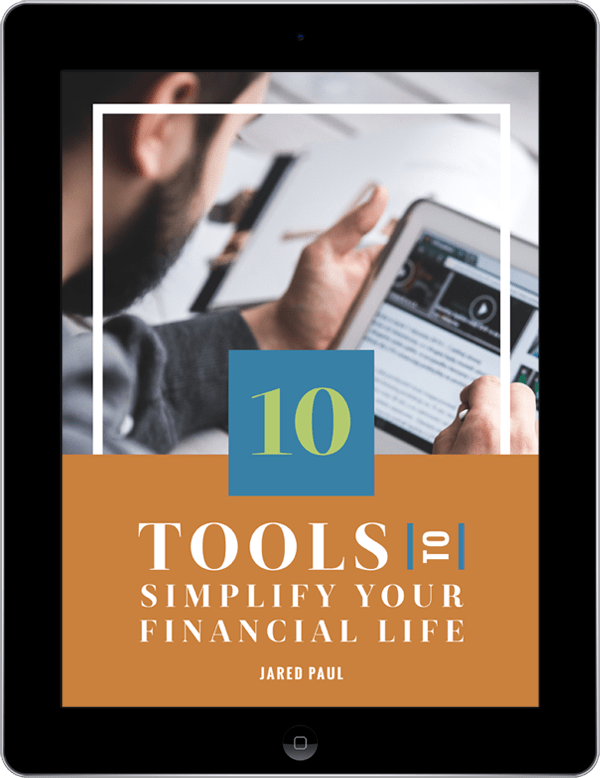College costs have skyrocketed in the last 30 years. From 1988 – 2018, the per year cost of a 4-year public school has grown (adjusted for inflation) from $3,190 to $9,970. That’s an increase of over 200% increase!
It’s no wonder that students are graduating with astronomical levels of debt. In fact, as of 2018, the average student loan borrower has $37,172 in student loans.
As someone who graduated with a substantial amount of student debt, I can empathize with what many new graduates are going through.
So, when a friend of mine recently told me that she is paying her way through her Master’s degree, as she goes, it was a breath of fresh air to hear.
THE PAY-AS-YOU-GO PATH THROUGH COLLEGE
My friend is currently getting her Masters in Social Work. She graduated with her bachelor’s degree a few years ago and is now going back to school in her late-20’s.
That wasn’t all uncommon to hear, but when she told me that she is slowly going through college (It’ll take her an extra year or two) and paying her way as she goes by working full-time, it really struck a chord.
She told me about one of her friends who had taken a different path, and had taken out a lot of debt to fund her college tuition. Now, years after graduating, she was incredibly stressed out each month and regretting her decision.
I feel like it’s become so easy for people entering college to get access to thousands of dollars, and don’t have to think twice about it. They don’t have to consider the long-term ramifications of what it means once you start paying them back.
So, when my friend told me about how she was slowly going through her Master’s so she could avoid acquiring a bunch of debt, I was happy to hear it.
STUDENT LOANS ARE EASY TO ACQUIRE
Lending institutions have made it so easy for young kids and their parents to take out student loans that many don’t think twice before filling out applications and beginning to rack up debt. The Federal government has also added to the problem by backing the loans and making it so you can’t really get rid of the debt during a bankruptcy.
What does this equate to? A lot of easily-acquired money for tuition, and little incentive for universities to keep costs low.
As a result, you get a population of graduates with record levels of debt.
As of the third quarter of 2018, total student debt in the U.S. hit $1.36 Trillion. That’s more than Auto loans, Credit Cards, or Personal loans.
This debt burden is having massive impacts on our society, and causing millennials to make much different decisions than past generations.
Just to name a few:
- Millennials aren’t starting businesses. In one study, 28% said that their student debt prevented them from starting a business.
- Millennials aren’t buying homes. Research has found that between 11-35% of the decrease in homeownership in 28-30 year-olds in recent years is attributable to increased tuition and debt burdens.
- Birth rates are on the decline. The median age for the first birth has been increasing for years, and is currently at age 26. On top of this, women aged 20 – 29 have recently hit a low for birth rate.
So, younger generations aren’t starting businesses, they aren’t buying homes, and they are waiting longer to get married and have children.
Of course, student debt isn’t the only reason for these societal shifts, but the vast majority of research and surveys have shown that this ever-increasing debt burden is a large factor.
BUT ISN’T COLLEGE A GOOD “INVESTMENT?”
One of the main reasons that people continue to rack up debt in the face of ever-increasing tuition rates is because the numbers still tell us that a college degree is a good investment.
It is well documented that potential career earnings increase if you have a diploma. In fact, a Georgetown University study found that, on average, college graduates earned $1 million more over their lifetime.
Not too shabby!
So, it would seem that if you don’t have the money, it still makes sense to take out loans to get a college degree.
Yes, for some…
Other studies have shown that recent college grads are having trouble finding jobs commensurate with their degrees.
One study showed that 45% of students who gradated between 2009-2013 are working in a “non-college job” meaning it is one that you do not need a degree for. And, thus, earning less than their degree might provide.
IS COLLEGE WORTH THE RISK?
All of this put together should tell us a few things.
- College is still very much worth pursuing – depending on your industry, the cost of the college, and a number of other variables. The increase in career earnings is enough to warrant attending.
- Getting a college degree isn’t a guarantee to a better life. Not all graduates immediately experience the projected increased earnings, and many struggle to find good-paying jobs, even with a degree.
- Heavy debt burdens cause dramatic amounts of stress, and can alter our decision-making. This might not be clear to an incoming freshman at a university, but ask any recent graduate with tens-of-thousands of dollars in debt and they’ll tell you to think twice.
My Recommendations:
If you are pursuing a career that necessitates a college degree, there’s not much of a choice here. However, there is a choice in which school you attend, and if you decide to take out student loans to fund your degree.
You should opt to go to a good school that is affordable, and not just the best school you got into, regardless of the cost.
And you should do all you can to avoid taking out student debt, if possible. Work your way through college and pay-as-you-go. Even if it takes you a couple extra years to graduate, the position you’ll be in post-graduation will be much more financially sound.
Debt can be used in smart ways to build wealth, but the vast majority of people don’t do this. And if you have a way to avoid it, you’re not just avoiding the financial burden, you’re avoiding a major stress in your life that could be acting as a road-block between you and your dreams.
Don’t make things harder on yourself after college.
Your diploma can act as a sail on a ship, helping to catch extra wind and propel you forward. But your student loans could end up acting like an anchor, weighing your financial boat down and prohibiting you from going anywhere for a long time.
Choose wisely.
Capably Yours,
















